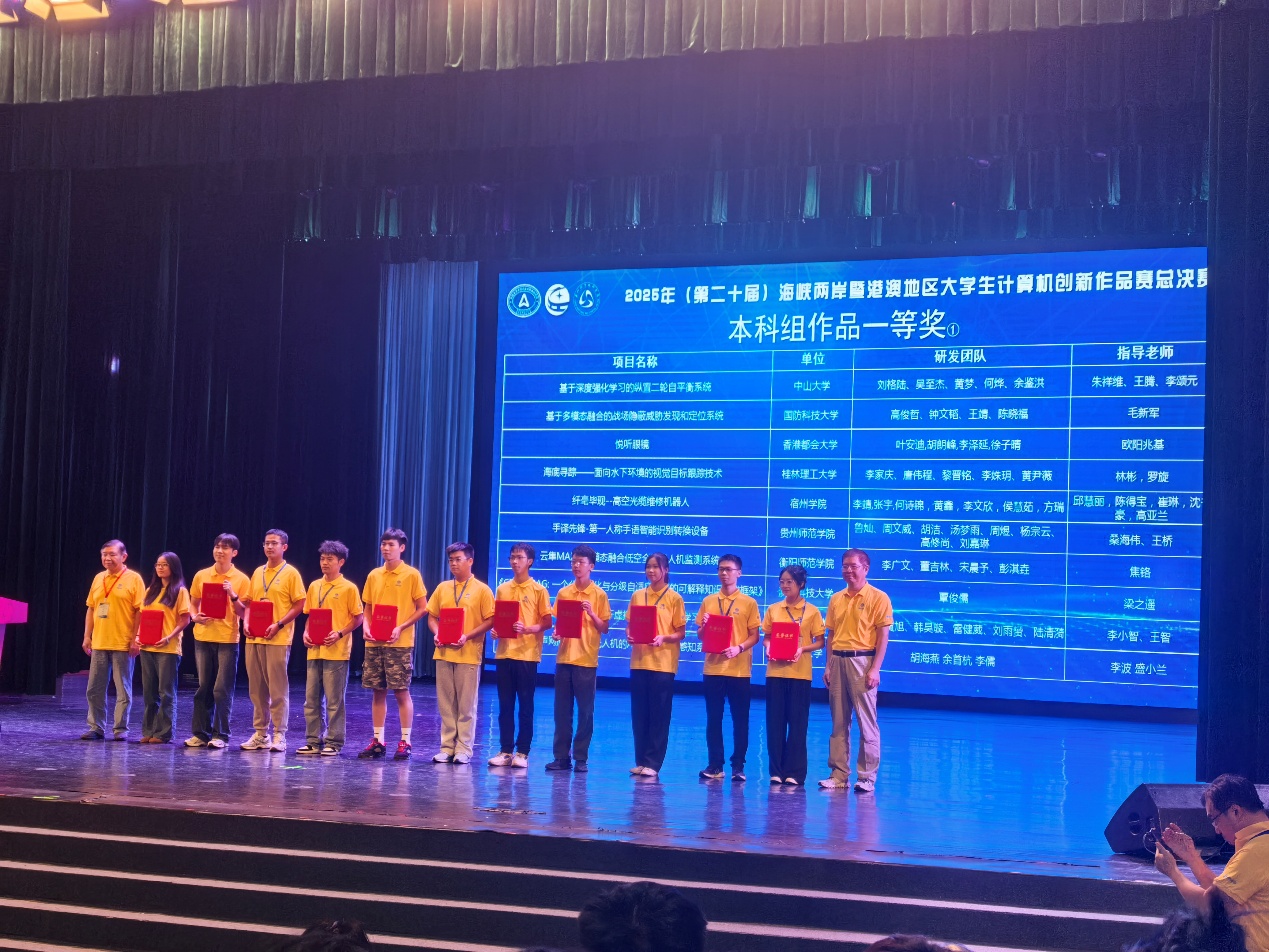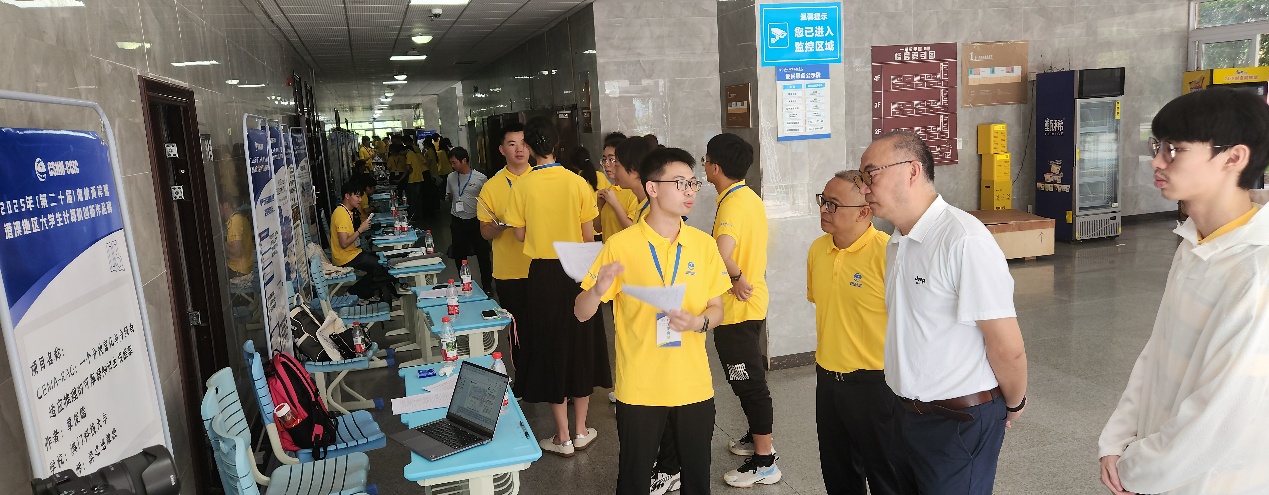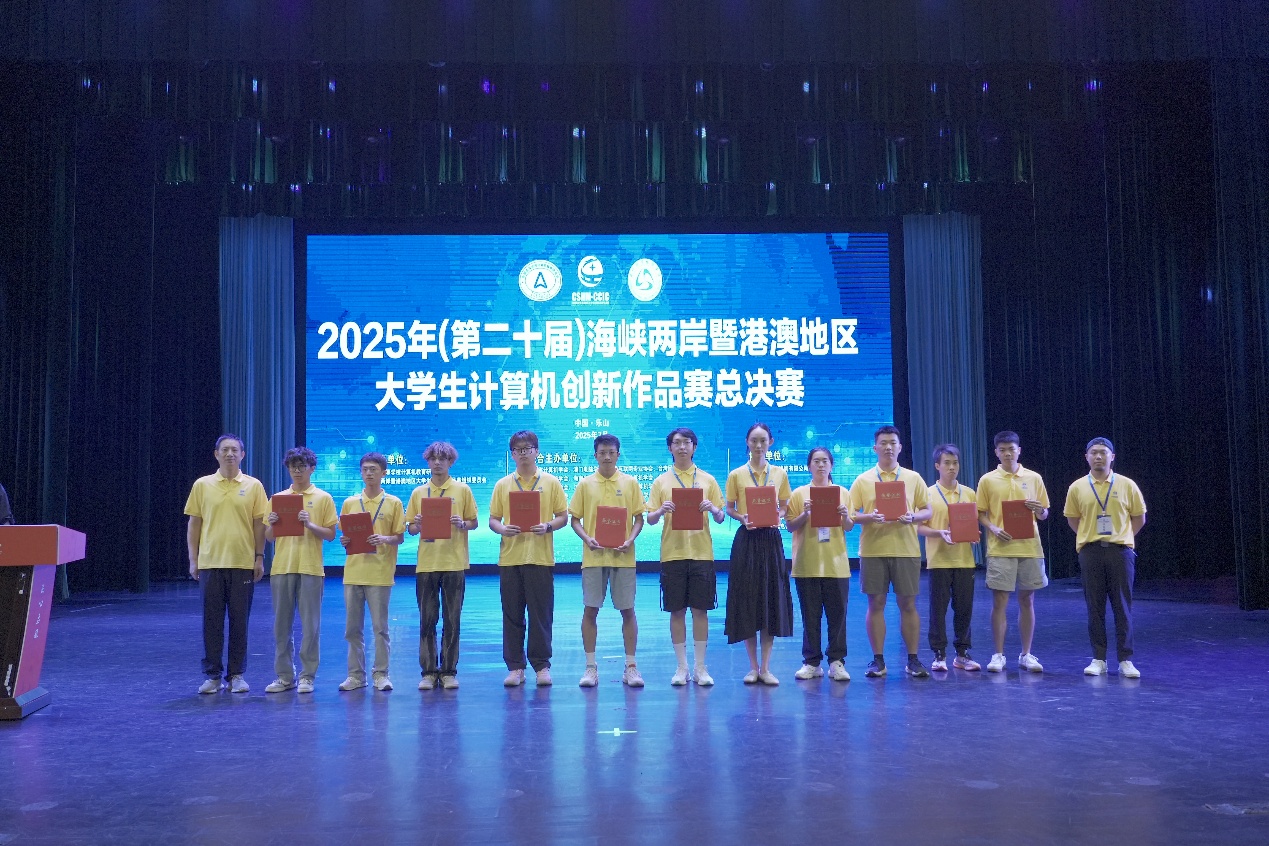The Grand Final of the 20th Cross-Strait and Hong Kong-Macao Computer Innovation Competition was successfully held from July 13 to 15 at Leshan Vocational and Technical College. Established in 2006, the competition is a long-standing and prestigious event that has run uninterrupted for 19 consecutive years. In 2024, it gained official endorsement from the Ministry of Education of China and was awarded a "Four-Star" rating on the National Collegiate Computing Competition Ranking List, placing it fourth among 28 national competitions in the field. This ranking, published by the competition jury of the Computer Education Research Association of Chinese Universities, solidifies its status as a highly influential platform for youth innovation in computer science across Mainland China, Hong Kong, Macao, and Taiwan.
This year's competition attracted participants from over 500 universities and colleges across 27 provinces, autonomous regions, municipalities, and the special administrative regions of Hong Kong and Macau, and Taiwan. Following a rigorous selection process, 195 innovative projects were selected to the grand finals, competing with top universities from various regions.
AI Breakthrough Secures Macao's Sole National First Prize by Addressing Key Industry Challenges
Following an intensive defense and presentation session, the team led by Macau University of Science and Technology (MUST) student QIN Junru was awarded the National First Prize, under the supervision of Associate Professor LIANG Zhiyao from the Faculty of Innovation Engineering of Macau University of Science and Technology.
This prestigious honor, the only one granted to a Macao team in this year's competition, was for their innovative project titled "CEMA-RAG: A Chunk-Enriched and Multi-level Adaptive Reasoning Framework for Explainable Knowledge Generation". The project directly addresses critical pain points within Retrieval-Augmented Generation (RAG), one of the most prominent AI application paradigms today. Through an innovative "Chunking Enrichment" algorithm, the framework tackles the problem of information fragmentation at its source. Furthermore, it introduces a pioneering "Multi-level Adaptive" architecture that enables the AI to intelligently match optimal solution pathways to queries of varying complexity. This breakthrough significantly enhances the accuracy, depth, and reliability of AI-driven question-answering systems.

MUST student QIN Junru (third from right) at the award ceremony.

QIN Junru presenting the project to the panel of judges from across the nation.
Second Prize Project: Empowering Traditional Industries with Technological Innovation
The team of LIANG Peng and HUO Zhifeng, supervised by Professor LI Jianqing from the Faculty of Innovation Engineering of Macau University of Science and Technology, won the national Second Prize for their project. Titled "FormFuse", the project is an intelligent classification system for Traditional Chinese Medicine (TCM) herbs based on computer vision.
The project introduces a novel approach to the long-standing challenge of accurately identifying and classifying traditional medicinal materials. By employing an innovative "dual-path feature fusion" methodology, the system effectively addresses key difficulties in TCM herb recognition. This provides crucial technical support for the standardization and digital management of these valuable materials.

MUST students HUO Zhifeng (second from right) and LIANG Peng (third from right) at the award ceremony
Competition Highlights Educational Philosophy: Bridging Theory and Practice with Innovation
Notably, the competition's evaluation criteria were distinctive. The expert judging panel conducted an in-depth assessment not only investigating the innovation in core technologies, such as underlying algorithms and architectural design, but also placing significant emphasis on the projects' real-world application potential and practical value. This approach required participants to possess not only cutting-edge theoretical knowledge but also the practical ability to transform creative ideas into viable solutions.
The projects undertaken by our teams were a prime example of this philosophy, illustrating the success of our faculty's dedication to nurturing versatile talent that is both theoretically grounded and practically skilled. In recent years, the faculty has consistently promoted interdisciplinary studies and hands-on innovation, encouraging students to connect classroom learning with industry demands. This accomplishment not only demonstrates the team's technical expertise but also fully affirms the effectiveness of our educational model in cultivating well-rounded professionals.
The successful participation of our university's students was strongly facilitated by the organization and support of Professor Li Jianqing.





